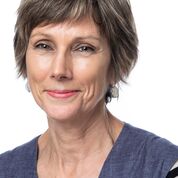When closure isn’t closure: carceral expansion on Manus Island
The Manus Regional Processing Centre at Lombrum in PNG was closed by the Australian and PNG governments in November 2017. The ruling of the PNG Supreme Court (1.8Mb pdf) in 2016 determined that the prison-like conditions of Manus Regional Processing Centre were unconstitutional, leading to the closure of the refugee detention centre at Lombrum. Over 600 of the men at this camp protested against the closure in October 2017. The men held substantive fears of violence, emanating from riots at the centre in 2014 and local threats, notably from Port Moresby military-style police units. They resisted being moved out. Progressively, the Australian and PNG governments dismantled buildings, turned off electricity and water supplies and stopped the provision of food. The men remained for 23 days without these services.
It might appear on face value that the transfer of the men to an 'open' centre comprised an end to detention as an element of Australia’s ‘externalisation’ of refugee protection at Manus Island. But naming this as a ‘closure’ and end to confinement and punitive conditions in detention is misleading.
The transfer of approximately 800 men at the time to the camp at East Lorengau has resulted in continued suffering, reaching crisis point for many of the men. The effective punishment of the men persists. The ‘closure’ of Manus Island detention centre at Lombrum diverts attention away from continuing harms in the offshore detention regime at East Lorengau camp. The failure of the Medevac legislation to provide for necessary transfers for those in need of medical care, and the anxieties of detainees after the recent Federal election in Australia, has prompted a number of suicide attempts. The injuries from these attempts cannot be managed adequately by the limited services on the island. If Medevac is repealed, it is likely that self harm will increase.
While ostensibly complying with a PNG Supreme Court ruling that the prison-like conditions of the Lombrum offshore processing centre were unconstitutional, the closure of the centre at Lombrum has simply reconfigured the carceral structure of the detention centre/prison for refugees into one which sees all the men confined to Manus as an ‘open air’ prison. This suggests an expansion to new forms of control. Despite allegedly being an ‘open site’, the East Lorengau camp is closed between 6am and 6pm, men are required to seek approval to venture outside the camp, and they are often monitored closely when they do so. No one can visit it without prior authority. The place is surveilled, inside and out. Some men have become so institutionalised that they have become clinically paranoid and will not venture beyond the compound.
The presentiment of death and suffering haunts these men even in the absence of conventional prison walls. This obsessive fear of death was conveyed by the men in the 2018 film Remain, made by Iranian photographer Hoda Afshar. Behrouz Boochani, scholar and journalist still being detained on Manus Island and who co-produced the film with Afshar, recounts in the film that Manus is a green hell, a 'green hell that burns us to our deepest souls: it is a howling promise of death.' Twelve men have died at Manus and Nauru, another offshore site, due to suspected suicide, medical neglect, violence or misadventure. Some of the men have expressed the fear that they will die there. This fear is real, as death can result from the failure to provide adequate medical care, even for what are initially easily treatable illnesses. The tragic death of young Iranian man Hamid Khazei was caused by an infection resulting from a mosquito bite. The infection was not treated on Manus: Hamid Khazei's death was preventable.
This suggests new patterns of externalisation: ‘closure’ (or in Europe the ‘emptying out’ of detention centres) is characterised by new openings and possibilities for externalising responsibility for refugee protection in more discrete ways. The harms of detention appear in new forms. In Italy, for example, the 'closure' of detention centres has left refugees homeless, without access to means of support.
Since the PNG ruling which led to the 'closure' of the Lombrum camp, we are witnessing the expansion, rather than the end of carcerality, in which refugee men are confined to Manus as an ‘open air’ prison. Disturbingly, responsibility for the harms that these policies produce is increasingly imposed on refugees themselves. If Australia's carceral expansionism is unable to be curbed by official judgements of unconstitutionality, then where do we look next to stop the punitive punishment of peoples who have committed no crime? Indeed, the testimonies of those detained on Manus bring to light that disjunction further: immigration detention is experienced through harm and acute suffering while those who have committed no crime are punished as though they are responsible for their own suffering.
Short biographies
 Dr Maria Giannacopoulos is Senior Lecturer in Socio-Legal Studies and teaches Criminology in the College of Business Government and Law at Flinders University. Her law degree is from the University of Wollongong and her PhD in Critical and Cultural Studies from Macquarie University in Sydney. Her research addresses the coloniality of Australian law in two overlapping fields: Aboriginal sovereignty and refugee and asylum studies. She is currently working on a project, with Dr. Claire Loughnan, on carceral and imperial expansion on Manus Island and on a special issue of Globalizations titled 'Law, Love and Decolonisation' with Professor Biko Agozino. She is also author of a forthcoming book Sovereign Debt, Austerity and the Endurance of Colonialism, a study of the sovereign debt crises of Greece and Australia, identifying and naming coloniality as the thread interconnecting the power dynamics at play in these countries.
Dr Maria Giannacopoulos is Senior Lecturer in Socio-Legal Studies and teaches Criminology in the College of Business Government and Law at Flinders University. Her law degree is from the University of Wollongong and her PhD in Critical and Cultural Studies from Macquarie University in Sydney. Her research addresses the coloniality of Australian law in two overlapping fields: Aboriginal sovereignty and refugee and asylum studies. She is currently working on a project, with Dr. Claire Loughnan, on carceral and imperial expansion on Manus Island and on a special issue of Globalizations titled 'Law, Love and Decolonisation' with Professor Biko Agozino. She is also author of a forthcoming book Sovereign Debt, Austerity and the Endurance of Colonialism, a study of the sovereign debt crises of Greece and Australia, identifying and naming coloniality as the thread interconnecting the power dynamics at play in these countries.
 Dr Claire Loughnan is a Lecturer in Criminology, at the School of Social and Political Sciences, University of Melbourne. Her research centres on the modes, practices and effects of carceral and confined spaces, including immigration detention, prisons and youth detention; and it explores the trend towards criminalised and racialised responses to border crossings, with a particular focus on the offshoring/externalisation of responsibilities for refugees. She is currently writing on Australia's role in offshore processing at Manus Island and Nauru and exploring the theoretical implications of the work of Kurdish writer, Associate Professor Behrouz Boochani, who is still detained in offshore processing. Claire is a committee member of the Carceral Geography Network, a working group of the Royal Geographical Society (UK).
Dr Claire Loughnan is a Lecturer in Criminology, at the School of Social and Political Sciences, University of Melbourne. Her research centres on the modes, practices and effects of carceral and confined spaces, including immigration detention, prisons and youth detention; and it explores the trend towards criminalised and racialised responses to border crossings, with a particular focus on the offshoring/externalisation of responsibilities for refugees. She is currently writing on Australia's role in offshore processing at Manus Island and Nauru and exploring the theoretical implications of the work of Kurdish writer, Associate Professor Behrouz Boochani, who is still detained in offshore processing. Claire is a committee member of the Carceral Geography Network, a working group of the Royal Geographical Society (UK).